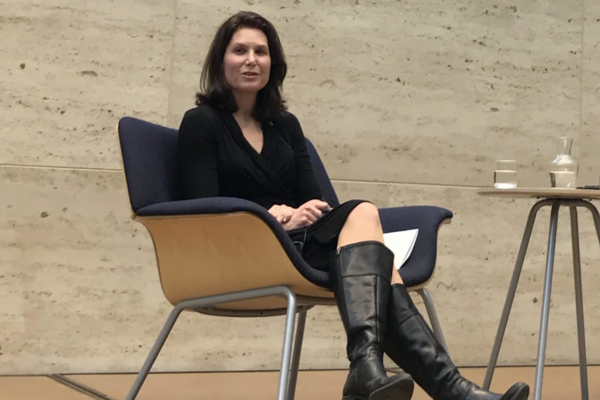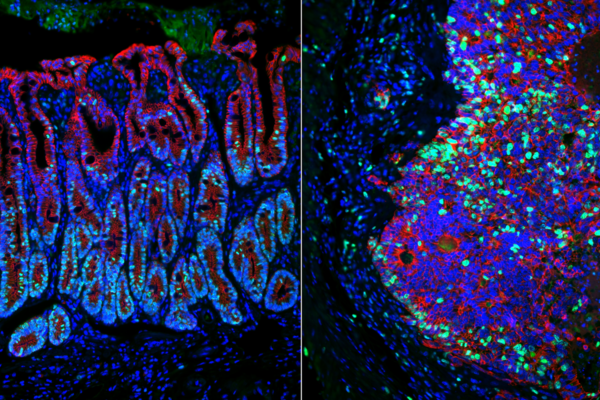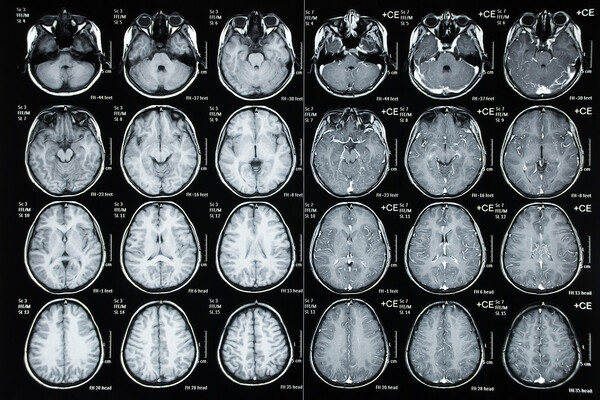
Image: Daniel Balakov via Getty Images


Image: Daniel Balakov via Getty Images

Image: Wladimir Bulgar via Getty Images

Dalton at the olfactometer lineup.
(Image: Shelby Wise)

The Polyhedral Structures Laboratory is housed at the Pennovation Center and brings together designers, engineers, and computer scientists to reimagine the built world. Using graphic statics, a method where forces are mapped as lines, they design forms that balance compression and tension. These result in structures that use far fewer materials while remaining strong and efficient.
(Image: Eric Sucar)

Image: Courtesy of Jennifer Prah

Konrad Kording and Ioana Marinescu.
(Image: Eric Sucar (left) and Carson Easterly (right))

Histopathology tissue sections of the normal colon (left) showing highly organized cell-cell junctions (red) and proliferative zones (green) in colonic crypts. In contrast, a colon adenocarcinoma (right) is highly disorganized, with inconsistent cell junctions that can ultimately contribute to metastatic dissemination.
(Image: Maggie Robertson)

Image: wellsie82 via Getty Images

Image: mathisworks/DigitalVision Vectors via Getty Images

A collaborative team led by Theodore D. Satterthwaite, Golia Shafiei, and Michael P. Milham has developed a large-scale, open data resource for mapping brain development and its associations with mental health.
(Image: fmajor via Getty Images)